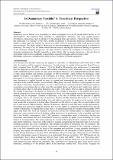| dc.contributor.author | everlyne Asiko Ambuyo, Mr Benard Odoyo Okal Dr Deborah, Nanyama Amukowa | |
| dc.date.accessioned | 2020-11-30T08:20:15Z | |
| dc.date.available | 2020-11-30T08:20:15Z | |
| dc.date.issued | 2017 | |
| dc.identifier.uri | https://repository.maseno.ac.ke/handle/123456789/3069 | |
| dc.description.abstract | Democracy can be defined as a government in which sovereignty lies with the people either directly or via representatives. The transition from monarchy to representative democracy was long, gradual process. Nevertheless, democracies seem to change with the changing times and cultures. There are many who believe that democracy is a construct of the West, molded in response to the peculiar historical circumstances that shaped it, others argue that freedom and democracy, while suitable in some parts of the world are by no means universal goods. The global spread of democracy has been accompanied by the global spread of criticisms of democracy. For many of us, the debate about democratization is anything but theoretical. Basing its arguments on the normative utilitarian perspective, this paper intends to discuss the possibilities of democracy even in dissenting antidemocratic thoughts especially in party politics. This is because democracy is the one form of government which evolves constantly to ensure that it is possible through a self-correcting system. | en_US |
| dc.publisher | Research on humanities and Social Sciences | en_US |
| dc.subject | Democracy, Antidemocratic, Party Politics, Normative Utilitarian perspective | en_US |
| dc.title | Is Democrasy Possible? A Theoritical Perspective | en_US |
| dc.type | Article | en_US |

